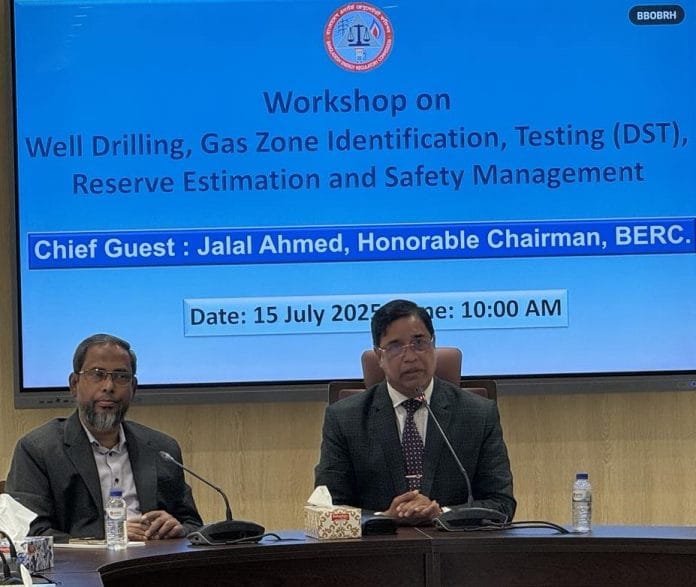Bangladesh Energy Regulatory Commission (BERC) Chairman Jalal Ahmed has said the commission wants to play a more proactive role in the energy sector but is severely constrained by an acute manpower shortage.
“We are still operating with a staffing plan conceived in 2003, which is far outdated for today’s energy landscape,” he told journalists at a workshop on well drilling and safety held at the BERC auditorium on Tuesday.
The event was organised for members of the Forum for Energy Reporters Bangladesh (FERB).
The chairman noted that the energy sector has evolved significantly since 2003. “Back then, the concept of captive power plants didn’t even exist. Now we have over 4,000 licensed captive plants. According to the law, BERC is supposed to have an active regulatory role in such areas, but the shortage of personnel is a major obstacle.”
He mentioned that an initiative to update the staffing structure was taken in 2017, but years have passed with no concrete progress. “We now need additional manpower urgently.”
Highlighting legal provisions, the BERC chief said that no energy project can proceed without the commission’s approval. “Without adequate staff, how can we evaluate proposals properly? Our aim is to assess the necessity of each project thoroughly, which would enhance transparency,” he said, adding that a formal letter has already been issued to require BERC’s clearance before project approvals.
Ahmed also expressed a desire to engage more with stakeholders across the sector. “We want dialogue on various issues to ensure better services for all,” he said.
On the Gas Development Fund (GDF), Ahmed confirmed that the commission is committed to ensuring its proper use. “We agree in principle that GDF money should not be diverted to other sectors. We’ll work to ensure that doesn’t happen,” he said in response to a journalist’s question.
The Gas Development Fund was created in 2009 after Petrobangla reported that its exploration efforts were hampered due to financial constraints. Petrobangla had proposed a hike in gas prices to fund exploration and drilling.
At that time, BUET Professor Dr. Nurul Islam proposed the establishment of a dedicated fund to support exploration, which BERC then mandated by adding a 46 paisa charge per cubic meter of gas from consumers. While the fund was intended for domestic exploration, it was later controversially used for LNG imports, sparking consumer dissatisfaction.
During the workshop, BERC Member Md. Mizanur Rahman gave a technical overview of seismic surveys, well drilling, DST testing, reserve estimation, and associated risks. A former top executive in state-owned energy companies, Rahman also emphasized the high potential for new gas discoveries in Bangladesh.
BERC Member Dr. Syeda Sultana Razia presented detailed insights into past fire incidents and other risks in the country’s energy operations.
FERB Chairman Md. Shamim Jahangir thanked the commission for arranging the workshop specifically for energy beat journalists.
The session was chaired by BERC Member Md. Abdur Razzak. Other attendees included BERC Member Brig. Gen. (Retd.) Mohammad Shahid Sarwar, Commission Secretary Md. Nazrul Islam Sarkar, and other senior officials.

